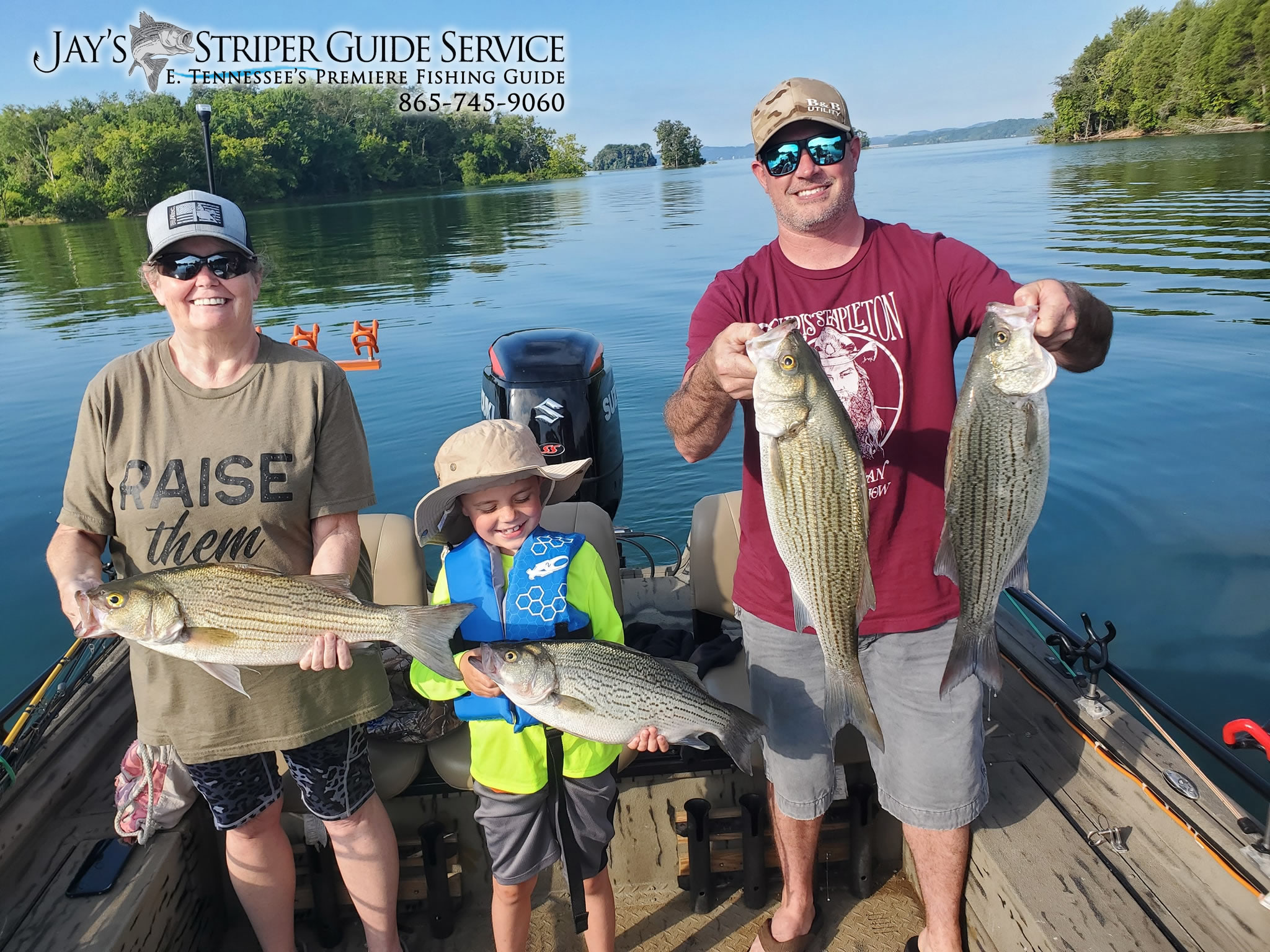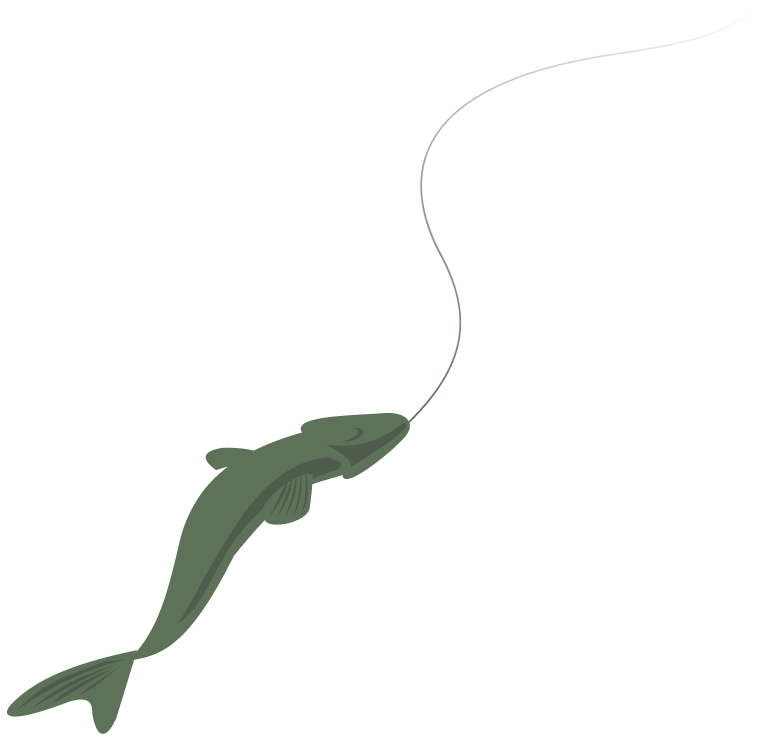
Fort Loudoun Lake Fishing
Fort Loudoun Lake in Tennessee offers anglers a variety of fishing experiences. The lake is well-known for its excellent largemouth bass fishing, especially in the warmer months. Anglers can also find crappie, smallmouth bass, and catfish. Early morning and late afternoon are the prime times for fishing, as fish are more active. The lake's coves and brushy areas are particularly productive, where fish often seek shelter. Local fishing guides are available to assist beginners or those looking to improve their skills, making Fort Loudoun a perfect spot for both novice and seasoned anglers.
In addition to its rich fishing opportunities, Fort Loudoun Lake provides a scenic and tranquil environment. The surrounding natural beauty, including lush greenery and serene waters, adds to the overall experience. Boating, kayaking, and other water activities complement the fishing experience, allowing for a well-rounded outdoor adventure. Many anglers enjoy camping at nearby facilities, where they can extend their stay and fully immerse themselves in nature. Whether you're fishing for sport or relaxation, Fort Loudoun Lake offers a rewarding and memorable experience.
How to Get a Tennessee Fishing License
When you purchase a fishing license in the state of Tennessee, you're helping to protect, preserve and enhance the sport of fishing for today and for generations to come. Tennessee License fees help pay for fishery and hatchery management, habitat development and protection, endangered species programs, fishing and conservation education, lake maps and other publications, and many other valuable programs.
Fishing licenses go on sale February 18 each year and are valid through the last day of February of the following year. You can purchase most fishing licenses from county clerks, sporting goods stores, hardware stores, marinas, the Tennessee Wildlife Resource Agency web site and all TWRA regional offices.
Tennessee Fishing License - TN Resident
Tennessee Fishing License - Non Resident
Tips for Catching Fish
Fort Loudoun Lake is connected via canal to Tellico on a 14,600 acre reservoir and is a much different lake. The warm water reservoir is more fertile and has more forage allowing bass to grow better. June and May tend to be the best months. Look for overhanging bushes, undercut points, banks and islands. If the water's up and touching bushes this tends to produce the best bites.
Crappie
Vertical jigging a leadhead tipped with a minnow in submerged tree tops is a good choice for catching crappie clinging to structure. Trolling medium diving crankbaits in 12 to 18 feet of water is a good way to find suspended crappies. Turkey Creek is a great place to troll for suspended crappie. Chartreuse grubs in 1/16 to 1/4 oz. size are doing very well right now. White and silver grubs are doing well also. The lead head tipped with minnow is catching good numbers of crappie.
Good lures: Tuffy minnows, small doll flies, mini tube jigs (red/white, blue/white) and 1/32 ounce hair or feather jigs tipped with minnows, Trout Magnets, or Slider grubs in a variety of colors.
Bluegill and Redear (Shellcracker)
They prefer small live bait such as crickets, redworms, pieces of nightcrawlers and even small artificial lures like grubs and very small crankbaits. A slip bobber set up is a good way to find some bigger bluegills, when they are a little deeper. But right now, you can find them anywhere on the reservoir. Submerged timber and brush are the best places to find these tasty panfish. Bluegill are excellent fighters when caught on a flyrod with a popping bug.
LargeMouth, SmallMouth & Spotted Bass
Smaller, slower presentations such as tubes and jigs are catching a few bass, but most are in the 1 to 1.5-lb. range. Spinnerbaits and minnow imitating crankbaits are still catching a few, but sometimes bites are few and far between.
Bluegill
They prefer small live bait such as crickets, redworms, pieces of nightcrawlers and even small artificial lures like grubs and very small crankbaits. A slip bobber set up is a good way to find some bigger bluegills, when they are a little deeper. But right now, you can find them anywhere on the reservoir. Submerged timber and brush are the best places to find these tasty panfish. Bluegill are excellent fighters when caught on a flyrod with a popping bug.
Catfish
Nightcrawlers and chicken liver seem to be the top bait choices for small to medium sized cats and cut bait seems to be the best bait for the bigger cats. Cut bait mainly consists of a shad or other oily baitfish cut into pieces and placed on a fairly big hook with a sinker from about 1/2 to 1 1/2 ounces. It is best to have heavier rods and reels for the bigger cats because they can pull very hard once hooked. They have even been known to pull entire fishing poles from the hands of anglers on occasion. Catfish primarily range from 1 or 2 pounds up to and including some in the 50-60 lb. range and everything in between. You can catch them during daylight hours right now, and big flat areas seem to be the hottest spots.
Be sure to also check out Statewide Creel and Length Limits & Regulations and the weekly updated TWRA Fishing Forecast for Norris Lake.
What fishing techniques work best at Fort Loudoun Lake?
Fishing at Fort Loudoun Lake can be a rewarding experience with the right techniques. For largemouth bass, which are quite popular in the lake, anglers often use crankbaits, spinnerbaits, and plastic worms. Fishing around structures like submerged logs, docks, and brush piles tends to yield good results. During the warmer months, topwater lures are effective, especially early in the morning or late in the evening when bass are more active near the surface.
For crappie, using live minnows or small jigs can be very productive, especially around brushy areas and submerged structures. Drifting or slow-trolling techniques work well to cover more water and locate schools of crappie. Catfish anglers often find success with cut bait, chicken liver, or stink bait, fishing on the bottom in deeper parts of the lake. Patience is key, as catfish are known to be opportunistic feeders. Overall, adapting your techniques to the specific conditions and time of year can greatly enhance your fishing experience at Fort Loudoun Lake.
When is the best time of year to fish?
The best time of year to fish at Fort Loudoun Lake largely depends on the species you're targeting. For largemouth bass, the spring and fall months are particularly productive. During spring, bass are in pre-spawn and spawn phases, making them more aggressive and easier to catch. The fall brings cooler temperatures, which also increases bass activity.
For crappie, the spring is the prime season as they move to shallow waters for spawning, making them easier to locate and catch. Catfish can be caught year-round, but the summer months are often the best, as warmer water temperatures increase their feeding activity. Early morning and late afternoon are generally the best times of day for fishing at Fort Loudoun, regardless of the season. Adjusting your techniques to the seasonal behavior of the fish can help maximize your chances of a successful fishing trip.

Angler's Guide To Fishing in Tennessee
Ft Loudoun Lake Fishing Guide Services
Start your weekend right with a guided fishing trip on Fort Loudoun Lake and Tellico Lake in East Tennessee. The fishing guides are well-equipped to provide an exceptional fishing experience. Whether you're an experienced angler or a beginner, they offer customized trips tailored to your needs, targeting species such as Striped Bass, Catfish, Largemouth and Smallmouth Bass, Rainbow and Brown Trout, Musky, Sauger, and Crappie.
The services cater to different group sizes and occasions, making it perfect for family outings, corporate events, birthday celebrations, and holiday gifts. They provide all the necessary equipment, including rods, tackle, and bait, ensuring you have everything you need to catch fish. The guides are also knowledgeable about the local waters and can offer tips and techniques to improve your fishing skills.
Fort Loudoun Fishing Guide Services operates year-round, offering trips on Ft Loudoun Lake and Tellico Lake on the Tennessee River. Their commitment to providing a memorable fishing experience is evident in their dedication to customer satisfaction and their passion for fishing. Whether you're looking for a relaxing day on the water or an exciting fishing adventure, hire a local Fishing Guide Service that offers something for everyone.
A Tennessee fishing license is required and is available online or at some of the local marinas on Ft Loudoun Lake. Be sure to also check the latest information on Ft Loudoun Lake fishing reports. Also, before booking your fishing trips, check the weather temperatures on Ft Loudoun Lake.
Fishing Guides | Licensed Captain | Telephone | Rates |
|---|---|---|---|
Chadwick Ferrell | $300-$550 Base price of $300 is 4 hours of fishing for 1-2 people | ||
Jay Girardot | 1/2 Day rates $325 (2 people), Full Day rates $400 (2 people) | ||
Joel Wheelon | 1/2 Day rates $300 (2 people), Full Day rates $350 (2 people) | ||
William (Billy) Clabough | 1/2 Day rates $300 (2 people), $50 each person max guests 3 | ||
Brad Burkhart | 1/2 Day rates $325 (2 people), Full Day rates $450 (2 people) |





